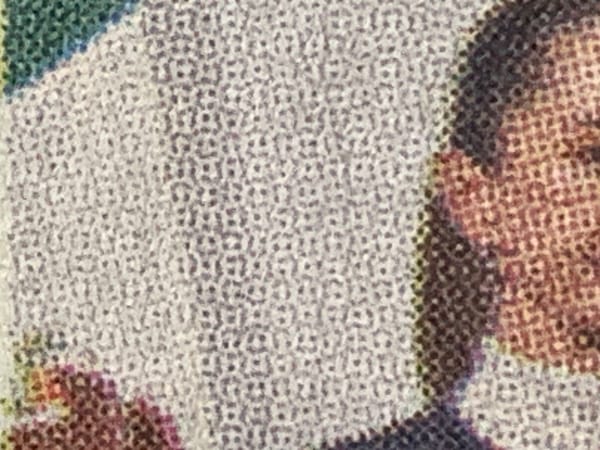Indignity Vol. 2, No. 35: Money talks.
STATISTICS DEP'T.

I Bet $100 That Nate Silver Doesn't Believe Nate Silver's Numbers
I DIDN’T STAY up to watch the Phoenix Suns play the New Orleans Pelicans last night. I had already tuned in for four minutes of wildly entertaining playoff basketball, as 22-year-old prodigy Ja Morant more or less singlehandedly rallied the Memphis Grizzlies past the Minnesota Timberwolves, trading scores with the fearless 20-year-old Anthony Edwards in the final seconds before Morant won it by shaking off an attempted steal by Edwards and bouncing down the lane for a reaching, swiveling left-handed layup. It wasn't even Morant's best play of the night, but it was plenty, the hour was late, and Suns–Pelicans was only one game.
While I slept, the Suns beat the Pelicans, turning a surprising 2–2 series tie into a 3-2 series lead. Phoenix had the best regular-season record of any team in the playoffs, and New Orleans had the worst, so it had seemed pretty safe to assume the Suns were eventually going to straighten things out.
According to the NBA playoff predictions from the omnibus data-analysis web publication FiveThirtyEight, though, that single game instantly raised the Suns' chances of winning the NBA title from 18 percent to 26 percent—a 44 percent increase in their overall championship outlook, thanks to one win in the first round of the playoffs.
FiveThirtyEight's favorite to win the title is the Boston Celtics, who its prediction system has favored throughout the playoffs, and who it currently gives a 39 percent chance. This is a big dropoff for the Celtics, though. Twenty-four hours ago, before last night's slate of games, FiveThirtyEight maintained that Boston had a 42 percent chance at a championship, or a better chance than the next three teams—the Suns, Golden State Warriors, and defending champion Milwaukee Bucks—combined.
This is nonsense. Every part of it is nonsense. Nothing about the NBA playoff picture changed so drastically overnight, and the idea that the Celtics were ever a better bet than the Suns, Warriors, and Bucks collectively is insulting.
There would seem to be many things in this world more worth getting mad about than a speculative sports leaderboard. But FiveThirtyEight's NBA predictions engine is the work of Nate Silver, who has made himself into one of our leading experts on how Americans understand the data-swamped world we live in—an expert on, to a great extent, the truths that are supposed to make up our shared reality. And Nate Silver is, at this point, entirely full of shit.
The story of Nate Silver is the story of how the incentives built into our media and political systems drive people to make themselves stupid and dishonest. Silver is a statistics obsessive who made a living playing poker, impressed people with his sports analysis, and then shocked or thrilled the political world by picking 49 out of 50 states correctly in the 2008 presidential election, followed by going 50-for-50 in 2012. He built that into a career as an all-knowing numbers oracle, with a constantly updating website, named for the total number of votes in the electoral college.
But the principle behind Silver's original election-picking triumphs was that people shouldn't listen to oracles or get excited about constant updates. While the traditional political press chased the narrative peaks and troughs of each new poll, describing wild swings in the election's momentum, Silver patiently fed each result into a slowly evolving average, weighted by the past quality of the pollster's results and making allowances for error. The important thing was to get the most meaningful numbers, to be ready when Election Day arrived.
If everyone just waited for Election Day, though, there wouldn't be any market for pundits. The pundit's job is to keep the new takes and claims flying, so people keep asking them what's going on. People may be willing to hang on the gradual movements of an incremental polling average in a presidential election year, but the attention economy needs something right now, and something else tomorrow.
As a result, in general, Silver has devolved into exactly the sort of blowhard Nate Silver warned us against. He has spent the pandemic offering not just ill-informed takes on epidemiology, but pure gassy mood-of-the-people opinionating. The person who wrote a book called The Signal and the Noise is now in the noise business.
His wildly fluctuating NBA predictions are not just noise, but sports noise—noise in the very area from which he originally specialized in extracting the signal. The sports world is dumber for their existence.
And I am absolutely certain that, despite everything, Nate Silver is fully aware of this. He knows his NBA predictions are bullshit. I bet him $100 he knows it.
Specifically: here's a bet, Nate Silver. I will take the Milwaukee Bucks, last year's champion, who went 51–31 this year. You take the Boston Celtics, who have never made it out of the conference finals with their current roster, and who also went 51–31. If the Celtics (a 39 percent championship pick, according to your site) win, I pay you $100. If the Bucks (an 8 percent pick) win, you have to pay me $480.
Or if you'd rather, I'll bet $100 on the Golden State Warriors (9 percent) against the Celtics, and you can pay me $430 if the Warriors win. I'm rounding off the dollars in your favor!
Or let's go straight up: you put $100 on the Celtics, I put $100 on the Bucks, Warriors, Miami Heat, Grizzlies, and Philadelphia 76ers, all together. And throw in the Dallas Mavericks, though the Mavs are not going to win the title. According to your numbers, as of today, my six have only a collective 34 percent chance of winning, so I'm still giving 5 percentage points away to Boston. A bargain for you!
(If we were to toggle over to your ELO projection system, rather than your default player-based RAPTOR projections, you'd presumably be willing to bet the Celtics, who the system rates at 47 percent, against the Suns, Bucks, Warriors, Heat, Grizzlies, and 76ers combined. But that's not the one FiveThirtyEight features on the home page, so we'll let it slide.)
It's possible I could lose these bets. Khris Middleton is out with a knee injury for Milwaukee. The Celtics really have played great basketball in the second half of the season and through sweeping the dysfunctional Brooklyn Nets. But I can hedge that risk, with room to spare, by putting, say, 50 bucks on the Celtics at DraftKings, where they're currently at 4.8-to-1.
How about it, Numbers Man? Does your money truly believe the Celtics are a better pick than five other winning teams put together? Or is that just something you put on your website?






